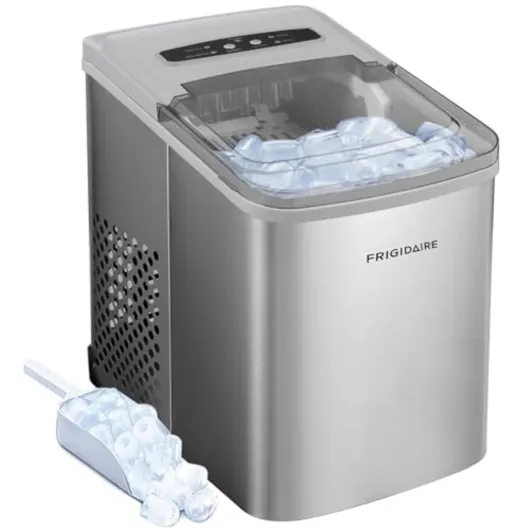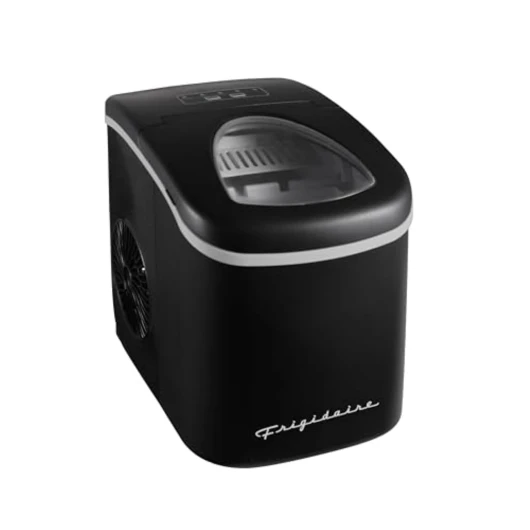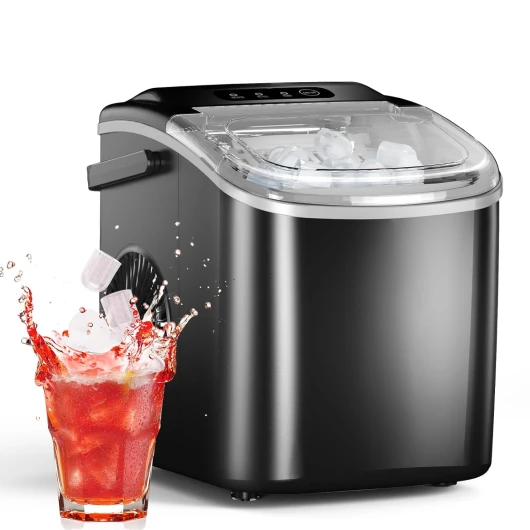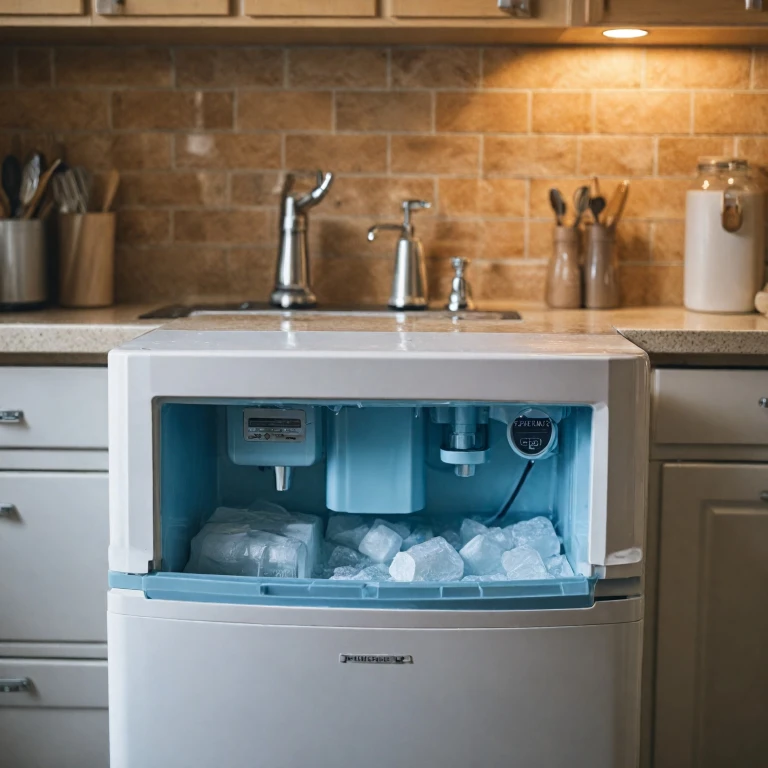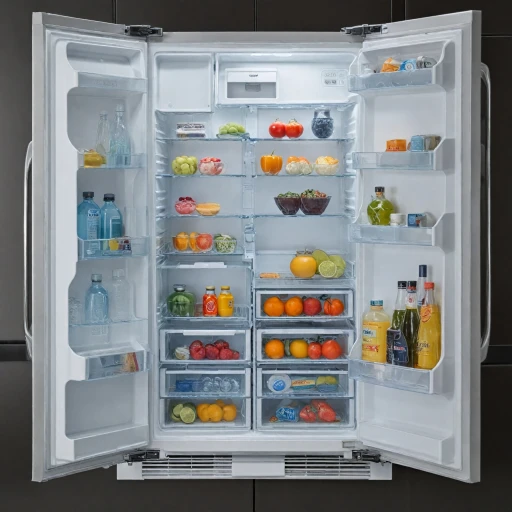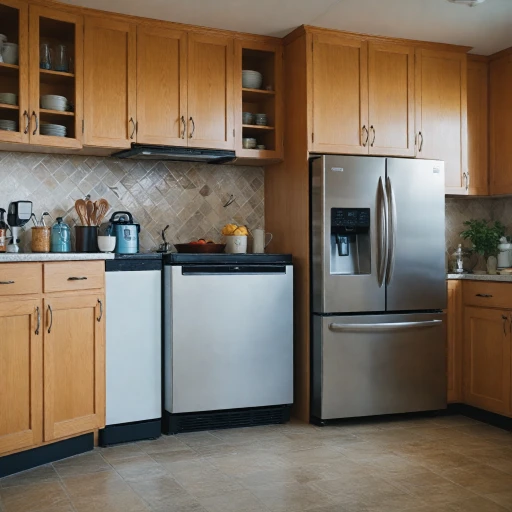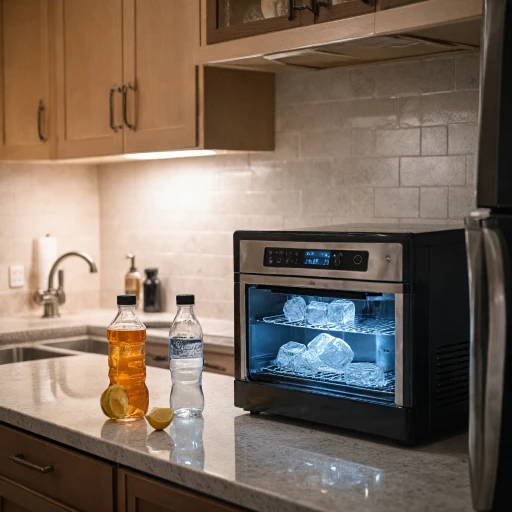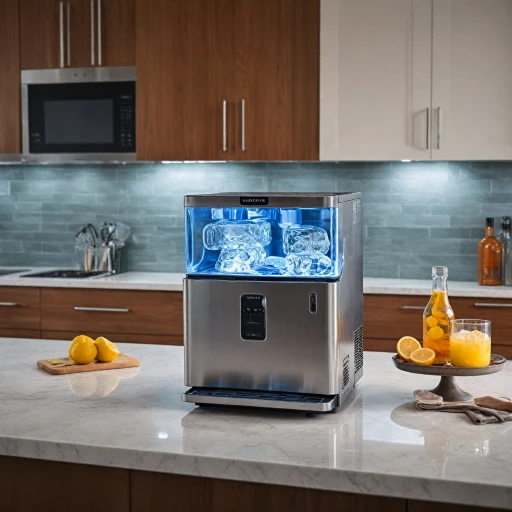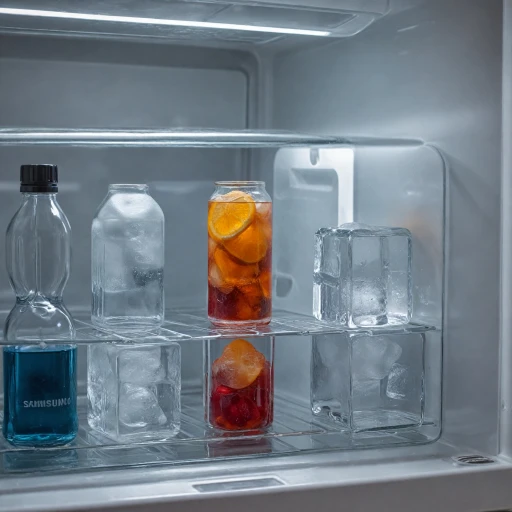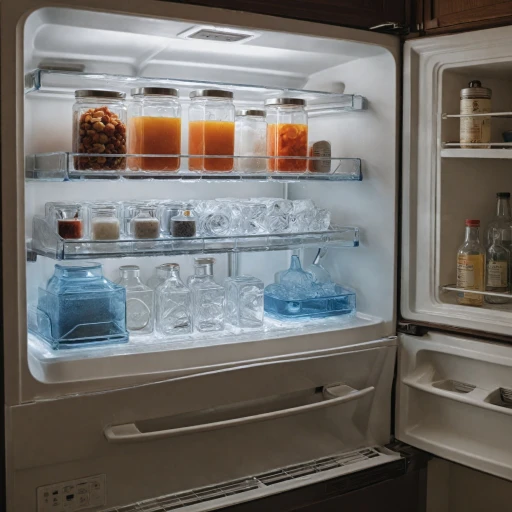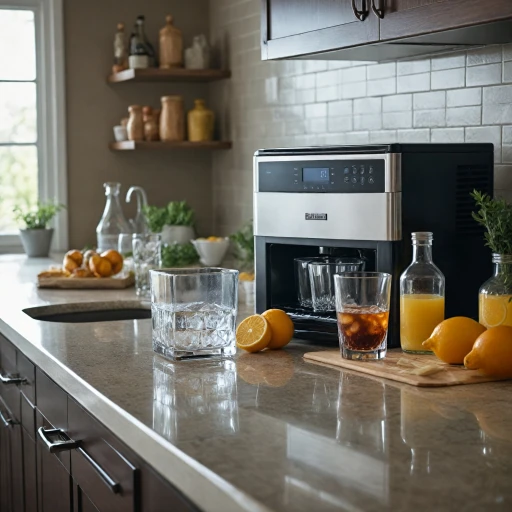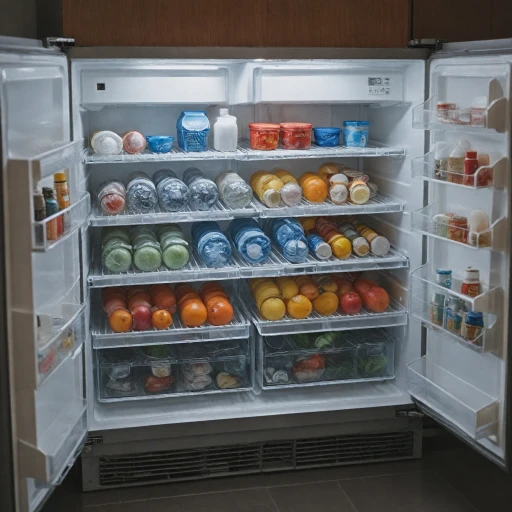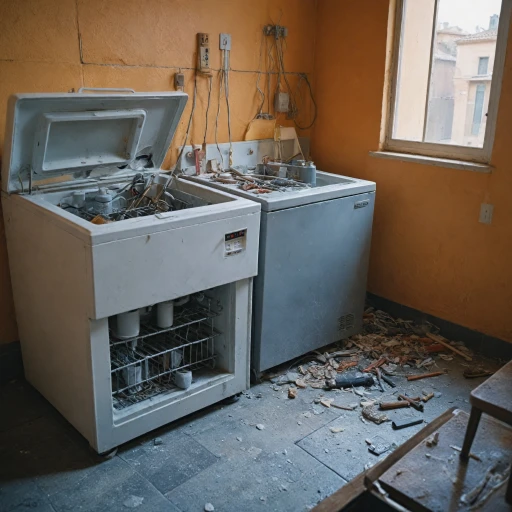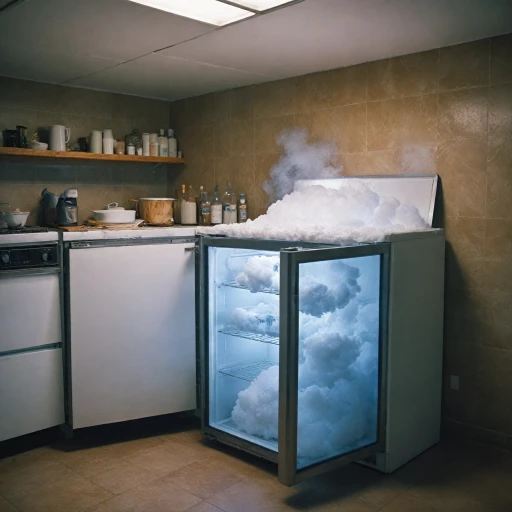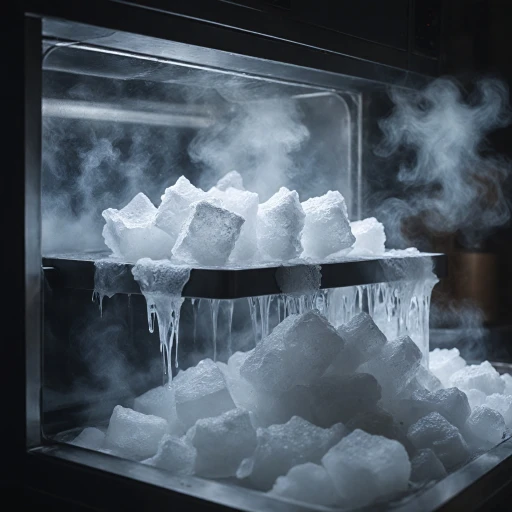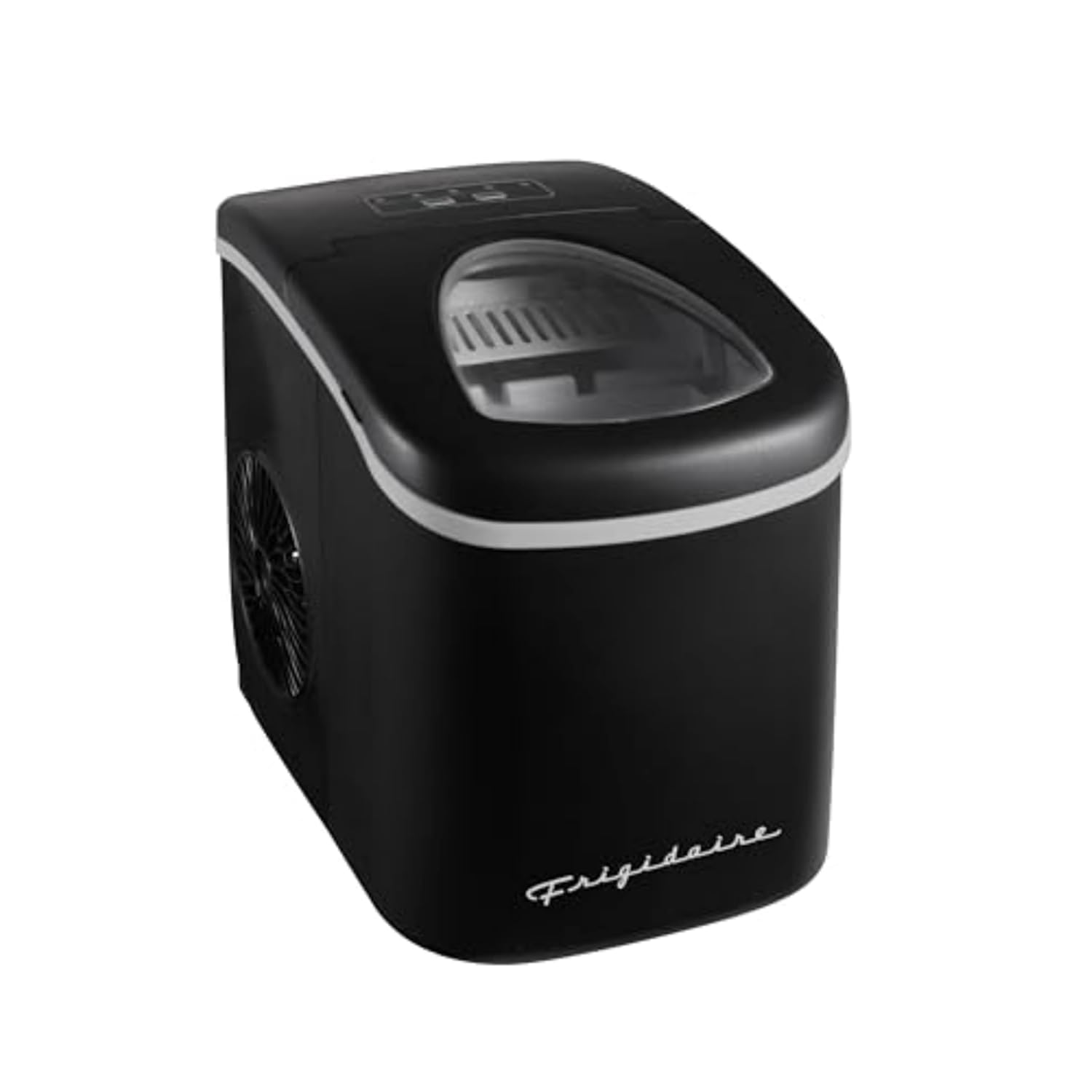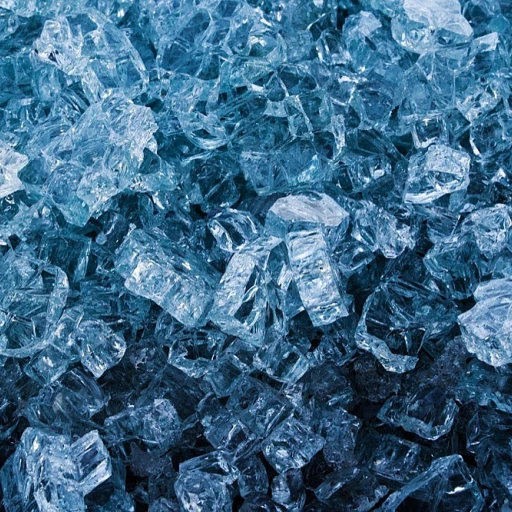
Understanding Your Frigidaire Ice Maker
Introduction to Frigidaire Ice Makers
Understanding the ins and outs of your Frigidaire ice maker can save you time and frustration when attempting to troubleshoot issues. To get started, it's vital to become familiar with the basic components and functions of your appliance. Frigidaire refrigerators, known for their reliability, often come equipped with efficient ice makers. However, understanding how they operate can help in identifying potential problems quickly. Your Frigidaire ice maker is composed of several key parts, including the water inlet valve, control board, water filter, and door switch. These components work in unison to produce ice within the freezer compartment of your refrigerator. Maintaining optimal freezer temperature is crucial for consistent ice production and to avoid unnecessary repairs. When your ice maker stops working, it can be due to a variety of reasons ranging from a malfunctioning water valve to a clogged water filter. Checking these parts regularly and understanding their role can prevent frequent breakdowns and ensure the longevity of your appliance. Employing preventative maintenance tips and staying informed about common issues can help keep your ice maker in top working condition. For an in-depth understanding and step-by-step guidance, exploring resources like a comprehensive guide to troubleshooting your Frigidaire ice maker could be beneficial. This approach not only aids in resolving current issues but also prepares you for any future problems that might arise.Common Reasons Why Your Frigidaire Ice Maker Does Not Work
Identifying Typical Malfunctions
When your Frigidaire ice maker stops producing ice, it's important to check some typical issues that could be the culprit. Understanding these common problems can help you determine whether simple troubleshooting or professional repair is necessary. Here’s what you should look out for:
- Water Supply Issues: Ensure the refrigerator is properly connected to the water supply. The water inlet valve should be checked for functionality to see if it's allowing water into the appliance. Low water pressure may also prevent the ice maker from producing ice effectively.
- Temperature Control: The freezer temperature should be set between 0-5°F for optimal ice production. Temperatures that are too warm can hinder the ice maker’s ability to freeze water efficiently.
- Check the Door Switch: If the refrigerator door isn’t closing properly, the ice maker may not start working. The door switch is responsible for signaling the appliance to resume ice production when the door is closed.
- Water Filter Blockages: A clogged water filter can restrict water flow to the ice maker. Assess if the filter needs replacement to ensure proper water ice production.
- Control Board or Sensor Failures: The main control board or any faulty sensors might prevent the ice maker from operating. These refrigerator ice components need careful inspection or replacement if defective.
- Inspect the Dispenser and Inlet Valve: The ice dispenser parts, including the inlet valve can sometimes malfunction leading to ice blockage or failure in ice transfer.
For a comprehensive guide to diagnose and fix these issues, visit this effective solutions for Bosch ice maker issues which also applies to Frigidaire models.
Step-by-Step Troubleshooting Guide
Identifying Basic Problems
Before diving into complex repairs, start by checking fundamental parts such as the ice maker's power and water supply. Ensure that the refrigerator is plugged in and receiving power, and verify that the freezer temperature is set to the recommended range. A consistent temperature ensures efficient ice production.
Checking Water Supply and Pressure
Water supply is crucial for your ice maker's functionality. Verify that the shut-off valve is open and the water inlet is unobstructed. Low water pressure can impede ice making, so make sure it meets the manufacturer's specifications. If water flow is restricted, the water filter may be clogged and in need of a change.
Evaluating the Control Board and Dispenser
The main control board manages operations, and any malfunction can disrupt your ice maker. If the ice maker is not working, inspect the control board for any visible damage or burnt components. Additionally, ensure the dispenser is not frozen or blocked, as this can prevent ice from being released.
Inspecting the Inlet Valve
The inlet valve regulates water entry into the ice maker. To diagnose issues, disconnect the refrigerator's power and examine the valve for blockages or defects. Replacing damaged parts can often restore proper ice production.
Testing the Door Switch
The door switch detects when the refrigerator door is open, pausing ice making and other operations. If defective, it may fail to signal the control board, causing the maker to stop operations. Consider testing or replacing the door switch to restore functionality.
For more details on fixing common ice maker issues, check this careful inspection guide.
When to Seek Professional Help
Recognizing the Right Time to Call the Experts
As a Frigidaire ice maker owner, there will be situations where troubleshooting steps you take might not resolve the issue at hand. While it's important to check for common issues, such as examining the water inlet valve or ensuring the freezer temperature is correctly set, there are instances when professional intervention is required.- Persistent Issues: If your ice maker has stopped working despite attempting various DIY fixes, such as verifying the door switch or replacing damaged parts, it's advisable to seek professional assistance. Repeated issues with ice production or malfunctioning dispenser components may also warrant expert evaluation.
- Complex Electrical Problems: Problems involving the main control board or other electrical faults within the appliance require specialized knowledge. Attempting such repairs can be risky and might lead to further damage if not handled by a trained technician.
- Frozen Water Lines or Valves: The water inlet, water pressure issues, or frozen parts can sometimes be more intricate than simple fixes. If defrosting methods haven't restored normal ice production, it's best to have a professional inspect the situation.
- Warranty Coverage: If your Frigidaire ice maker is still under warranty, performing unauthorized repairs may void its coverage. Before attempting extensive repairs, check if they are covered by the warranty and utilize authorized service providers.
Preventative Maintenance Tips
Maintain Your Ice Maker to Ensure Smooth Operation
Regularly maintaining your Frigidaire ice maker helps to prevent issues, enhance its efficiency, and prolong its lifespan. Here are some practical tips to keep your appliance in top working condition:- Check and Replace the Water Filter: A clogged water filter can reduce water flow to the ice maker, affecting ice production. Ensure the filter is replaced every six months or as specified in your refrigerator's manual.
- Inspect the Inlet Valve: The water inlet valve is responsible for supplying water to the ice maker. Regular inspections can identify any blockages or leaks that might hinder water flow.
- Monitor Freezer Temperature: Ensure that the freezer temperature is set correctly. Ice makers need a specific temperature range (usually between 0-5°F) to produce ice efficiently.
- Evaluate Water Pressure: Insufficient water pressure can limit the flow to the ice maker. Check that the water pressure falls within the recommended range for optimal ice production.
- Regular Cleaning: Clean the ice dispenser and bin to prevent the growth of mold and bacterial build-up. Stainless steel components can be wiped with appropriate cleaners for sanitation.
- Inspect the Control Board and Door Switch: Ensure the control board and door switch are functioning correctly as they play crucial roles in the operation of the ice maker.
- Identify and Replace Worn-Out Parts: Over time, components like the valve or door seals may wear out. Regularly check for signs of wear and consider replacement parts when necessary.
- Keep the Freezer Door Closed: Make sure that the freezer door seals properly to maintain a consistent temperature for ice production.
Frequently Asked Questions
Frequently Asked Questions About Your Frigidaire Ice Maker
Why is my Frigidaire ice maker not making ice?There could be several reasons why your ice maker isn't producing ice. Check if the water inlet valve is open and functioning properly. Ensure the freezer temperature is set correctly, as a high temperature can prevent ice formation. It's also a good idea to inspect the water filter for clogs and replace it if necessary. Refer to the troubleshooting guide for a detailed step-by-step process. How do I reset my Frigidaire ice maker?
To reset your ice maker, locate the reset button, usually found on the control board or near the ice maker itself. Press and hold it for a few seconds until you hear a beep or see a light indicator. This can help resolve minor issues with the ice maker not working. What should I do if my ice maker is leaking water?
A leaking ice maker can be caused by a faulty water inlet valve or an improperly aligned water filter. Check these parts for any visible damage or misalignment. If the issue persists, it might be time to seek professional repair services. Can a clogged water filter affect ice production?
Yes, a clogged water filter can significantly impact ice production by restricting water flow to the ice maker. Regularly replacing the water filter as part of preventative maintenance can help maintain optimal ice production. Why does my ice maker make small or hollow ice cubes?
Small or hollow ice cubes can result from low water pressure or a malfunctioning water inlet valve. Ensure that the water pressure is adequate and that the valve is functioning correctly. If necessary, consult the troubleshooting guide for further instructions. Is it normal for my ice maker to make noise?
Some noise is normal as the ice maker operates, such as the sound of ice dropping into the bin or the water valve opening. However, if you hear unusual noises, it might indicate a problem with the appliance's parts, like the motor or the dispenser. When should I consider replacing my ice maker?
If your ice maker consistently fails to produce ice or requires frequent repairs, it may be time to consider a replacement. Check for replacement parts that are compatible with your Frigidaire refrigerator model to ensure a smooth installation.
-logo-retina.png)
